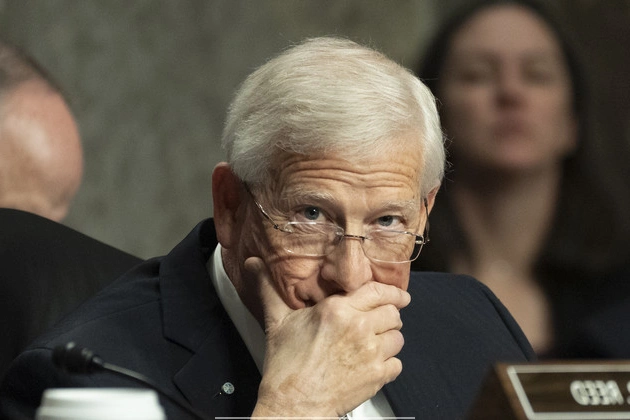
Senate Armed Services Committee leader, Sen. Roger Wicker, has criticized President Donald Trump’s proposal to accept a Boeing aircraft from Qatar, joining a bipartisan group of lawmakers in expressing concerns over the potential gift.
Wicker raised doubts about the feasibility of the swap, which Trump has portrayed as a cost-effective solution for a new Air Force One. He highlighted the extensive security measures and surveillance equipment checks that would be necessary before the aircraft could be utilized.
Republican Unease and Cost Concerns
Republican unease over the plan is growing, with experts estimating that the retrofitting process could incur significant costs, potentially amounting to hundreds of millions of dollars and taking several years to complete.
Contrary to Trump’s assertion that the Qatari jet represents a patriotic gesture and a quicker alternative to Boeing’s delayed Air Force One replacements, Wicker emphasized the complex and expensive nature of adapting the aircraft to meet American safety standards.
Call for Boeing’s Enhanced Efforts
Wicker urged Boeing to intensify its efforts in developing suitable replacements for Air Force One, rather than endorsing the acceptance of a gift that would demand substantial modifications. He stressed the importance of aligning the communication and safety features of the aircraft with U.S. standards.
Trump’s proposal to transfer the jet to his presidential library post-term has also faced bipartisan opposition, with critics arguing that such a gift should be directed to the U.S. government for broader utility.
Ethical and Security Concerns
Senate Majority Leader John Thune and other Republican lawmakers have expressed ethical and security reservations regarding receiving a lavish gift from a foreign government. Democratic senators have gone a step further, seeking an investigation into the constitutional implications of the proposed gift to Trump.
The concerns extend to the timeline of the aircraft’s readiness for presidential use, with Democrats emphasizing the need for any gift to be directed to the U.S. government rather than an individual.
Defense Sales and Diplomatic Engagements
Amidst diplomatic engagements, the Trump administration announced defense sales agreements with Qatar and Saudi Arabia, emphasizing ongoing partnerships and agreements initiated under previous administrations.
The administration’s focus on defense deals during diplomatic visits underscores the strategic importance of arms sales and military cooperation in U.S. foreign policy.
As discussions continue around the Qatar jet proposal, the bipartisan concerns highlight the complexities and sensitivities surrounding foreign gifts and security protocols within the U.S. political landscape.











